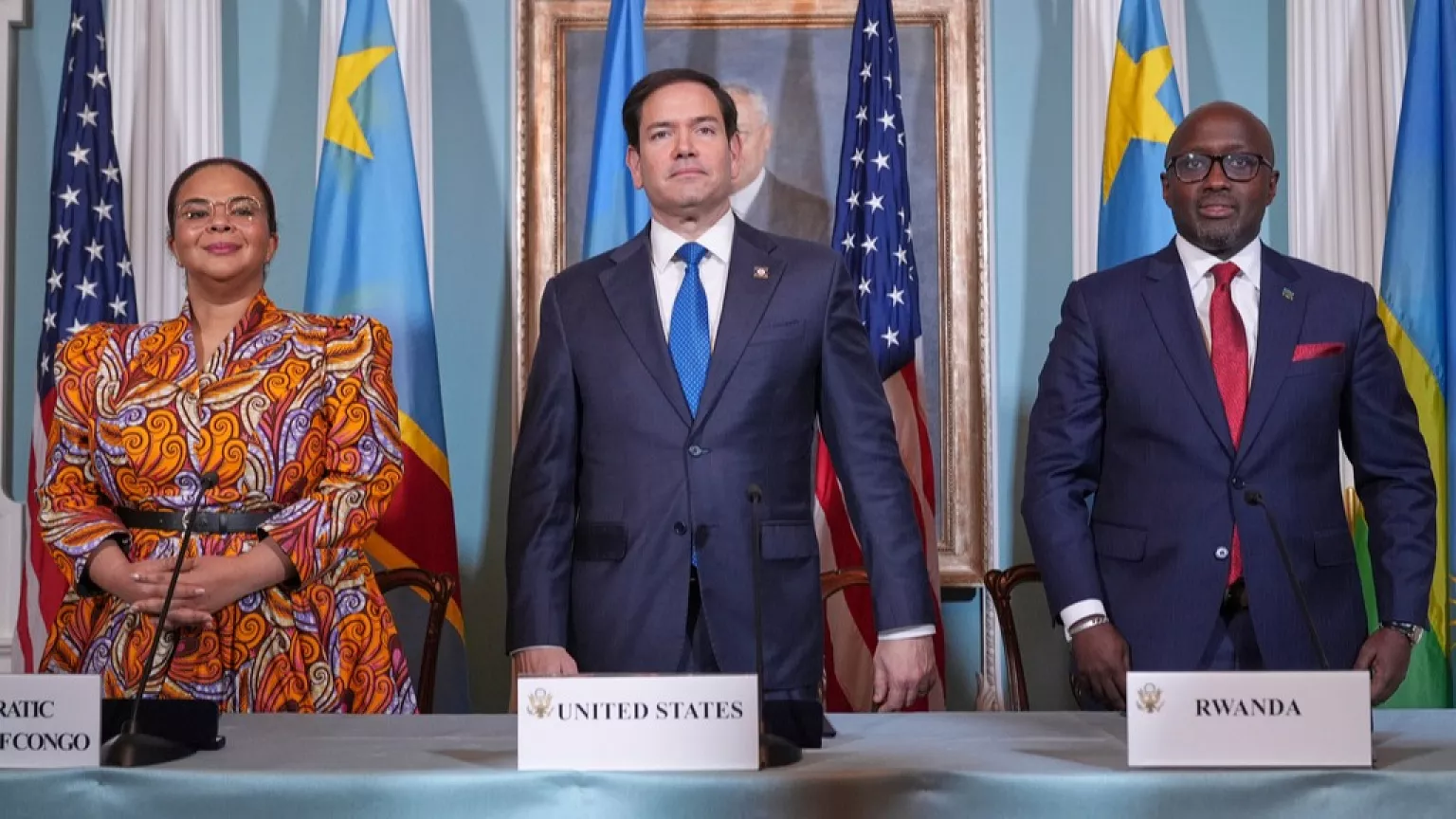
In a landmark development aimed at ending decades of hostility, the Democratic Republic of Congo and the Republic of Rwanda signed a comprehensive peace agreement in Washington on June 27, 2025.
Brokered under the auspices of the United States and released by the U.S. Embassy in Kinshasa, the deal sets forth a binding framework covering political, security, humanitarian, and economic dimensions.
Central to the accord is a mutual commitment to respect each nation’s sovereignty and territorial integrity. Both parties pledge to cease all direct or indirect hostilities and to withdraw any form of support—financial, logistical, or political—for armed non-state actors.
The agreement explicitly builds upon the Harmonized Plan for the Neutralization of the FDLR and the Disengagement of Forces (CONOPS), adopted in Luanda in October 2024 under the AU-Angola process.
The parties also reaffirm their intention to settle disputes exclusively through peaceful means and to honor the post-independence borders.
In a significant step, they commit to halting all military incursions and to refusing sanctuary to militias that pose threats to regional peace and stability.
An important component of the agreement concerns coordination around the Qatar-led peace talks in Doha between the DRC and the M23 rebel group. Any reintegration of combatants into Congolese security forces will depend on strict criteria, including good conduct, physical and moral aptitude, allegiance to the state, and non-involvement in grave violations of international humanitarian law.
To monitor compliance, a Joint Security Coordination Mechanism (JSCM) has been established.
This body, comprising representatives from military, intelligence, and foreign affairs sectors of both nations, will be responsible for overseeing the execution of CONOPS, neutralizing the FDLR, and facilitating mutual disengagement. The JSCM will issue monthly progress reports and will be joined by observers from the United States and Qatar.
Humanitarian provisions of the agreement guarantee the safe and voluntary return of refugees, drawing from the 2010 tripartite accords signed in Kigali with the UNHCR.
Both governments also pledge unimpeded access for aid workers and the protection of civilians and humanitarian personnel, in line with international humanitarian law.
MONUSCO, the UN peacekeeping mission in Congo, is acknowledged as playing a critical role. The agreement calls for full respect of its mandate under UN Resolution 2765 (2024) and guarantees its freedom of movement, security, and access to operational zones.
Economically, the accord outlines an ambitious framework to be launched within three months of ratification.
It includes joint management of Lake Kivu, the creation of regulated mineral supply chains, third-party economic audits, and the dismantling of illicit trade routes. Implementation will leverage regional institutions such as the AfCFTA, ICGLR, and EAC, and will prioritize American investment partnerships.
To ensure accountability, a Joint Oversight Committee comprising the DRC, Rwanda, the African Union, Qatar, and the United States will be tasked with resolving disputes and overseeing adherence to the agreement.
This committee will convene no later than 45 days after the agreement’s effective date and will operate on the basis of consensus.
The agreement takes immediate effect upon signing and remains valid indefinitely unless revoked with 60 days’ written notice. Amendments require mutual written consent.
An annex to the accord provides detailed guidelines for the JSCM, including meeting schedules, data-sharing mechanisms, observer participation, and reporting procedures.
The CONOPS annex outlines a strict four-phase timetable—preparation, operations, evaluation, and stabilization—spanning a maximum of 120 days.



